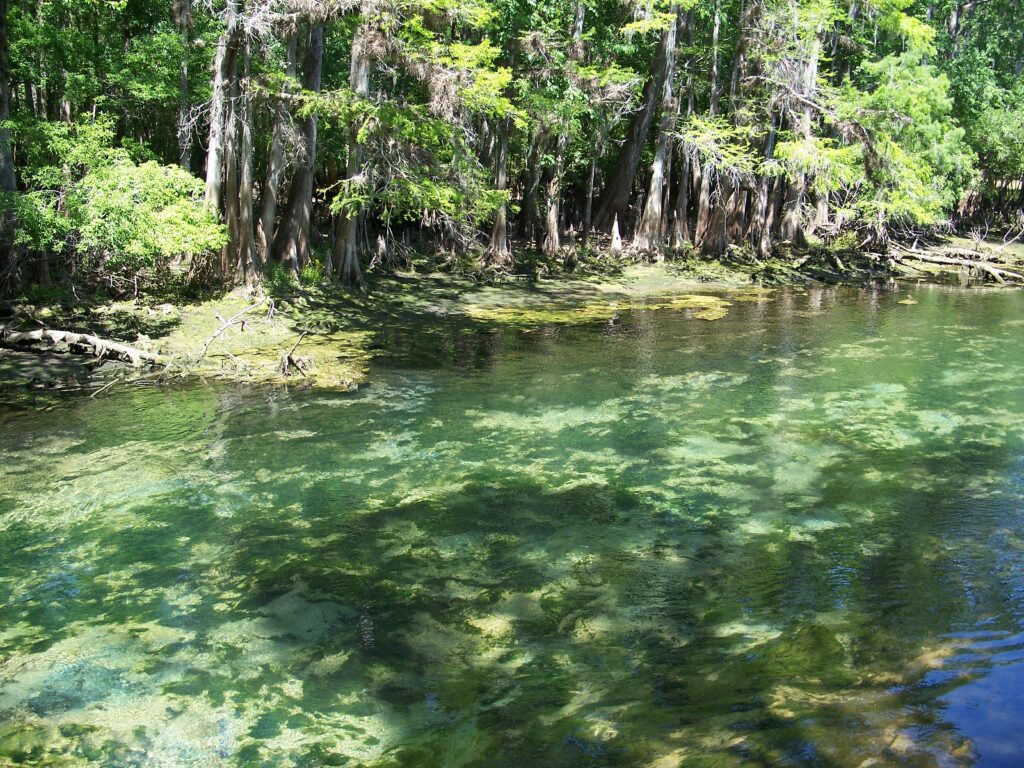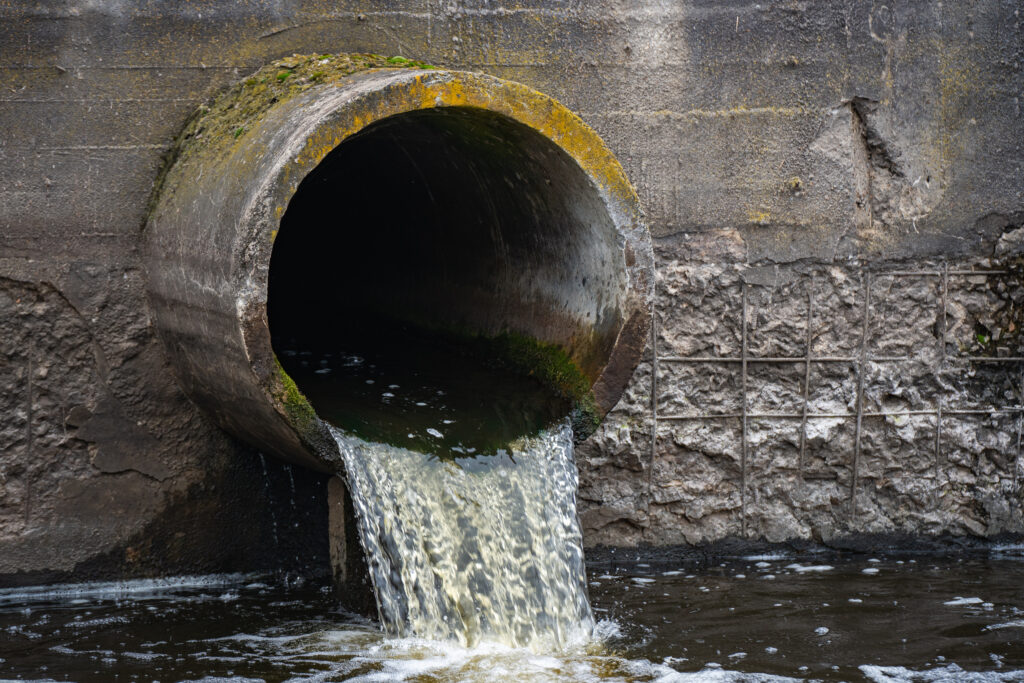By Judith E. Koons
As a lawyer in Florida for 47 years and a law professor for 20 of those years, I have watched in dismay as our environmental laws have failed to stop the steady deterioration of the quality of our waters. Like many readers, I have worked on a host of environmental issues that seem to continue unabated.
Because I taught Florida Constitutional Law for a number of years, I was invited to work on the Right to Clean and Healthy Waters Amendment. I brought to this task a belief that the missing piece in Florida law is a fundamental right to clean and healthy waters at the highest constitutional level.
Many Floridians are aware of the dire condition of our waters. Florida has a million acres of estuaries and 9,000 miles of rivers and streams that are contaminated by fecal bacteria. Over 2 million acres of lakes in Florida are unsuitable for swimming and aquatic life.

Our state is also the home of 1,000 beautiful springs, 80% of which are now impaired. Moreover, a steady onslaught of pollution has been responsible for the death of nearly 2,000 manatees over the past two years, many of which starved to death.
It is well known that 50,000 metric tons of legacy phosphorus sit at the bottom of Lake Okeechobee. Despite warnings from the Environmental Protection Agency, the state has not updated human health criteria for dangerous chemicals that go into our waters. Finally, and perhaps most telling, the state has issued 23,000 permits over the past 50 years to allow industry and agriculture to discharge pollution into the surface waters of the state.
The foregoing facts sit at an odd juxtaposition with prevailing beliefs that we have strong environmental legal protections in our state. Many Floridians assume that environmental laws are at work to preserve the quality of our waters and that, in the event of any untoward mishap, there is a right to challenge a despoiling event. Some in our state are assuaged to recall the constitutional amendments that have been adopted to protect our environment, in general, and our waters, in particular. Surely the law, as it is, will safeguard our waters and ensure that any problem is not beyond repair.
Yet, the tragic reality is that the present state of the law is ineffective to prevent the rapidly declining condition of our waters. Four points underscore this reality.
First, the Florida Constitution does not include an enforceable right to abatement of water pollution. Article II, section 7(a) states in part: “Adequate provision shall be made by law for the abatement of air and water pollution …” This section is a policy statement and does not create any enforceable constitutional rights.
In addition, the “Polluter Pays” amendment in Article II, section 7(b) was found by the Florida Supreme Court to be non-self-executing, effectively nullifying its effect. Our Constitution, as presently written, provides no basis to challenge the blighting of our waters.
Second, there is only a qualified statutory right in Florida to bring a damages claim for pollution.
Damages do not prevent harm from occurring but provide a remedy after-the-fact to seek compensation for injury. Consequently, a damages remedy does not provide a legal approach to stop or correct the deterioration of our waters.
Third, special interests in Tallahassee have a special place in the heart of our politics. Much anguish has been expressed about industry capture among our legislators and executive agencies.
For example, agribusiness has successfully resisted effective regulation. The key reasons cited by the state are industrial interests and economic consequences.
Fourth, and most damning, the structure of our present legal system is designed to permit pollution. On the face of the law, Florida Statutes state that any facility or activity that proposes to discharge waste that likely will be a source of water pollution must obtain a permit to do so from the Department of Environmental Protection. (See Florida Statutes, Chapter 403, Part I.) Consequently, the baseline of the law is to permit pollution.

Undergirding this baseline is the legal default position known as the cost-benefit approach. Although it sounds so reasonable, the cost-benefit analysis follows a series of presumptions that industrial development is beneficial while overriding concerns about pollution that is created. Helping to cement these presumptions is a burden of proof that does not require polluters to show their activity is safe, but that mandates challengers to show that the activity is unsafe.
As a consequence, the state has allowed an aggregation of pollution of our waters that is simply staggering. The data is there for everyone to see. On the Department of Environmental Protection’s website, an Excel sheet goes for 117 pages and lists over 1,800 water bodies that are verified as impaired and awaiting a plan for partially restoring them to acceptable water quality standards.
The reasons for impairment of these water bodies range from fecal and escherichia coliform, to bacteria, turbidity, dissolved oxygen, iron, lead, copper, silver, aluminum, arsenic, enterococci and an array of nutrients such as algal mats, nitrate, macrophytes, total nitrogen and total phosphorous. Clearly, the present environmental legal standards in Florida have failed to do the one thing we asked them to do – protect the waters of our environment.
The proposed Right to Clean and Healthy Waters Amendment changes the entire legal landscape to allow challenges to the action and inaction of state agencies that harm and threaten harm to Florida’s waters. Instead of co-signing the presumptions built into the law, the proposed amendment creates a completely different and higher level of inquiry – a fundamental right that is grounded in the inherent power of the people.

This fundamental right cannot be overridden by secondary statutory or regulatory tests. At its core, the fundamental right alters the burden of proof and places it on a defendant state agency to demonstrate a compelling and narrowly tailored interest to justify harm or threatened harm to Florida waters. This initiative changes the entire backdrop of Florida law that has permitted our waters to be subject to the effects of ever-increasing pollution.
We stand at an inflection point in the condition of our waters. To continue business as usual is to tacitly approve the ongoing slide into filthy waters. The time is now for the Right to Clean and Healthy Waters Amendment. Many signed petitions are needed to place the proposed amendment on the 2024 ballot. To support this effort, go to FloridaRightToCleanWater.org to print out, sign and mail in a petition.
Judith E. Koons is an attorney, a retired law professor and a graduate of the University of Florida College of Law and Harvard Divinity School.



